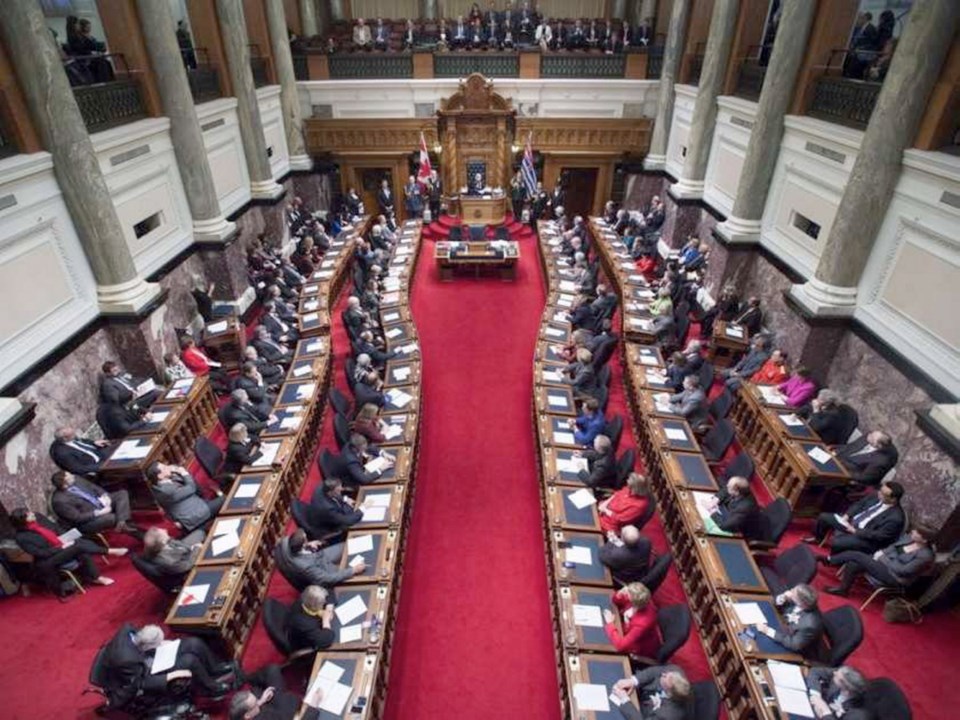British Columbia will start writing the general concept of Indigenous reconciliation into law today, something that has big ramifications.
So does a new financial deal that preceded today’s bill. It’s a major change to how the massive pool of gambling revenue is divvied up.
First Nations are getting a secure chunk of money that will amount to about $100 million a year. The new guaranteed revenue source could wind up being as important as the reconciliation commitments to be introduced today.
Promises, even written in law, are one thing. A 25-year, locked-down guarantee of hard cash is another.
Indigenous Relations and Reconciliation Minister Scott Fraser estimated the total value of the deal over its lifetime could be close to $3 billion.
It was announced last November and the bill that sets up the new arrangement has been quietly making its way through the legislature this month. It was “co-developed” by the government and three First Nations leadership groups.
Although it hasn’t passed yet, the money started flowing last year, as almost $200 million was earmarked to cover the first two years. Another $2 million was put up by the government to set up the mechanisms to disburse the funds.
At ground level, it’s estimated that B.C.’s 203 individual First Nations will get between $200,000 and $2 million a year out of the deal.
Allocating the money is the job of a new Indigenous limited partnership, which will control the funding.
Hundreds of revenue-sharing deals are already in place. The existing ones are mostly resource-based and generate about $125 million a year for First Nations whose lands and rights are affected.
The new revenue stream will be in addition to all the current ones, and doesn’t subtract from those values, or from other Indigenous funding efforts.
Measured another way, the new revenue stream is seven per cent of the B.C. Lottery Corp.’s net income. That’s the legal entitlement.
The upside is obvious. First Nations get a surge of on-going new money to spend on all the obvious needs — child care, housing, infrastructure, economic development, etc.
The downside is that the share is being carved out of the government’s take from gaming revenue. So the consolidated revenue fund from which most government spending flows will be down an equivalent amount.
Opposition Liberals are supporting the bill, but raising concerns about some details.
There have been questions about why the money isn’t put directly into band budgets, rather than sent to an entity that will take applications and decide who gets what.
Indigenous leaders have been campaigning for years for a share of the gambling take. The previous Liberal government resisted, preferring to do band-by-band economic development and revenue-sharing deals, of which there are about 500 now on the books.
They also cited concerns about how the change could potentially affect the other major sector at the table, the communities and charity groups that get a piece of the gambling pie.
Fraser guaranteed no change.
“There is no impact on existing gaming funding that already goes out under other programs that benefit local communities.”
Indigenous Skeena Liberal MLA Ellis Ross had misgivings about the “middleman” subtracting from the funding.
As an ardent supporter of liquefied natural gas development and the Trans Mountain pipeline expansion, he questioned whether “politically incorrect” projects will meet eligibility requirements.
“I sincerely hope that whoever’s going to administer these funds does not take their political leanings into where these funds are going.”
Another Indigenous MLA, the Greens’ Adam Olsen (Saanich North and the Islands), supported it wholeheartedly.
Liberal critic John Rustad, a former Indigenous affairs minister, questioned the lines of authority laid out and whether the new limited partnership can represent all 200 First Nations.
He was also concerned about the federal government’s reaction, and whether new gaming revenue would be a new factor in federal funding.
If it’s considered own-source revenue, it could potentially reduce the amount of revenue that comes in from the federal government, he said.
Determining whether relatively affluent First Nations will get the same share as impoverished ones also needs to be determined.
The bill sets the stage for today’s reconciliation bill, and the effects will be watched just as closely.



